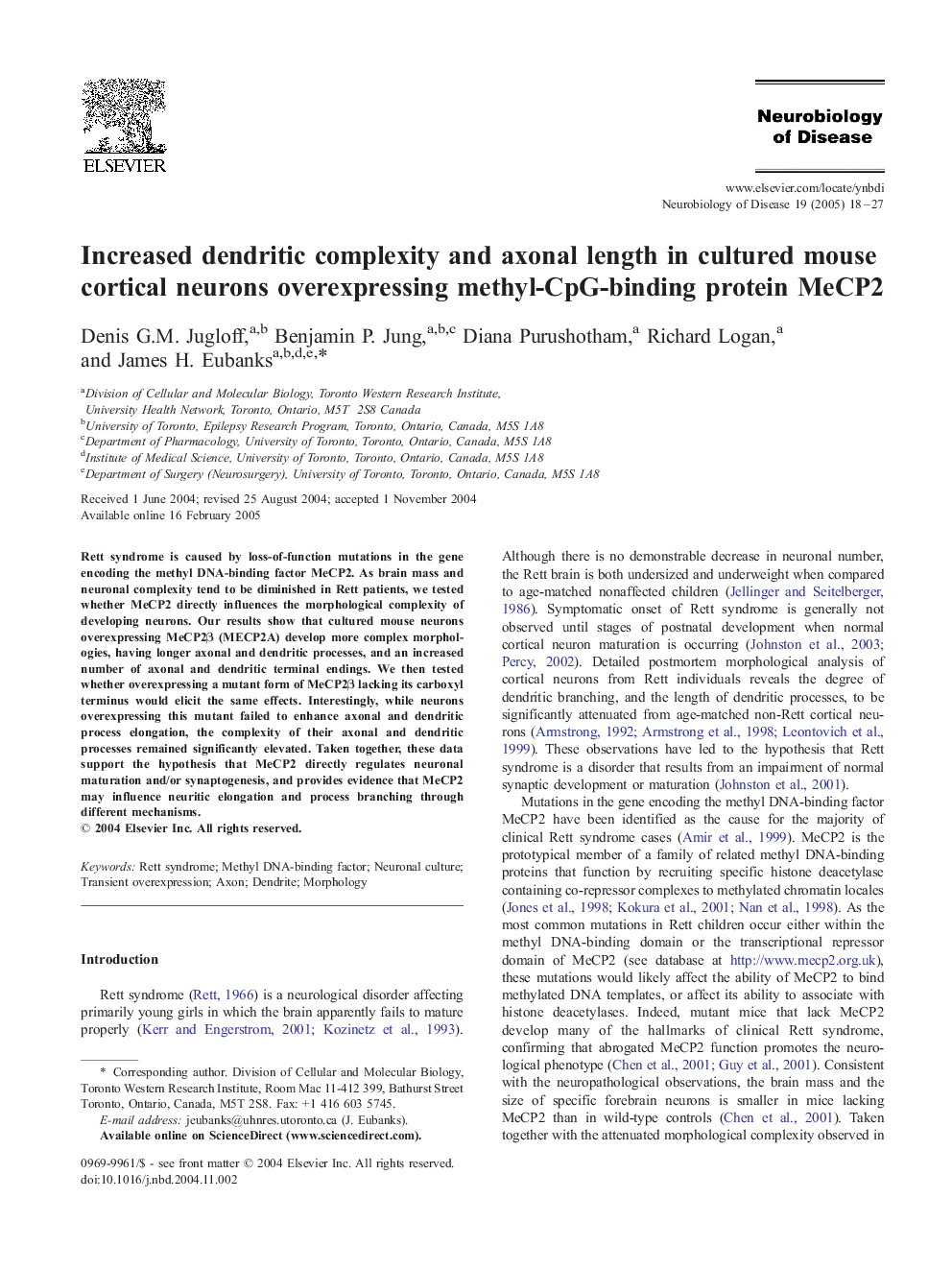| Article ID | Journal | Published Year | Pages | File Type |
|---|---|---|---|---|
| 9989702 | Neurobiology of Disease | 2005 | 10 Pages |
Abstract
Rett syndrome is caused by loss-of-function mutations in the gene encoding the methyl DNA-binding factor MeCP2. As brain mass and neuronal complexity tend to be diminished in Rett patients, we tested whether MeCP2 directly influences the morphological complexity of developing neurons. Our results show that cultured mouse neurons overexpressing MeCP2β (MECP2A) develop more complex morphologies, having longer axonal and dendritic processes, and an increased number of axonal and dendritic terminal endings. We then tested whether overexpressing a mutant form of MeCP2β lacking its carboxyl terminus would elicit the same effects. Interestingly, while neurons overexpressing this mutant failed to enhance axonal and dendritic process elongation, the complexity of their axonal and dendritic processes remained significantly elevated. Taken together, these data support the hypothesis that MeCP2 directly regulates neuronal maturation and/or synaptogenesis, and provides evidence that MeCP2 may influence neuritic elongation and process branching through different mechanisms.
Related Topics
Life Sciences
Neuroscience
Neurology
Authors
Denis G.M. Jugloff, Benjamin P. Jung, Diana Purushotham, Richard Logan, James H. Eubanks,
